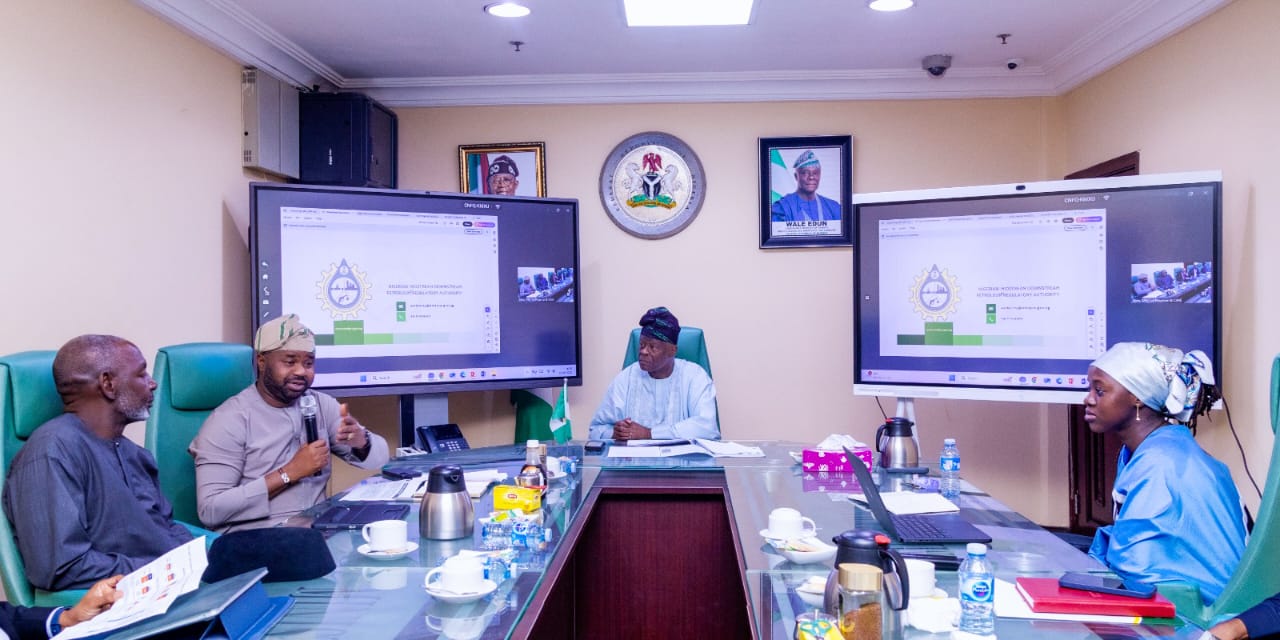Naira-for-Crude: The Steady Progress

By
Arabinrin Aderonke Atoyebi
The naira for crude policy is one of the smartest and most realistic steps taken to fix Nigeria’s oil and gas sector. It is not just about money. It is a well-planned effort to grow local value, depend less on foreign currency, and strengthen our ability to refine oil here at home (Nigeria).
For decades, we watched as our crude oil left Nigerian shores only to return as expensive imported fuel. We lost value and billions of dollars in foreign exchange every year. That cycle had to end. With the introduction of this policy, the federal government made a point: Nigeria will now prioritize local refining, pay for its crude in naira, and keep more of its resources within its economy.
The recent meeting of the Technical Sub-Committee on Domestic Crude Sales in Naira (ICONS) focused on reviewing how the naira-for-crude policy is being put into action. The meeting was chaired by Dr. Zacch Adedeji, Executive Chairman of the Federal Inland Revenue Service, and attended by the Minister of Finance and Coordinating Minister of the Economy, Mr. Wale Edun. Also present were representatives from the Nigerian National Petroleum Company Limited (NNPC), Dangote Refinery, the Central Bank of Nigeria (CBN), the Nigerian Upstream Petroleum Regulatory Commission (NUPRC), the Nigerian Midstream and Downstream Petroleum Regulatory Authority (NMDPRA), and the Nigerian Ports Authority (NPA).
The meeting reviewed the progress made so far. More than 48 million barrels of crude oil have been supplied to local refineries and paid for in naira. Monthly supply schedules are now in use, helping refineries plan better and avoid disruptions. Officials also discussed how the One-Stop Shop is making it easier for stakeholders to follow procedures and obtain approvals. Overall, the meeting helped to strengthen the policy and support efforts to grow Nigeria’s local refining and reduce reliance on foreign exchange.
This is how reform should work: with regulators and operators facing each other, not avoiding one another. For once, the silence between agencies is being filled with coordination.
The Dangote Refinery, a major player in the sector, is already receiving crude under the new arrangement. Its participation provides an early signal that the policy can work at scale. As other refineries complete their preparations, they are expected to be included as well. What is important is that Nigeria is taking steady, well-considered steps to change from an import-dependent petroleum economy to one that adds value locally and supports job creation within its borders.
Nigerian refineries are now tapping into a more consistent pipeline of crude supply, which is helping to reduce downtime and improve throughput.
This is what the Renewed Hope agenda represents, making the most of what we have to build a future for Nigerians. The naira-for-crude policy is not just a change in how oil is paid for. It shows that government and industry can work together to solve problems. It is a step toward building an economy that focuses on local production, stable systems, and better opportunities for the peopl3 of our great nation.
_Arabinrin Aderonke Atoyebi is the technical assistant on broadcast media to the executive chairman of the Federal Inland Revenue Service_








